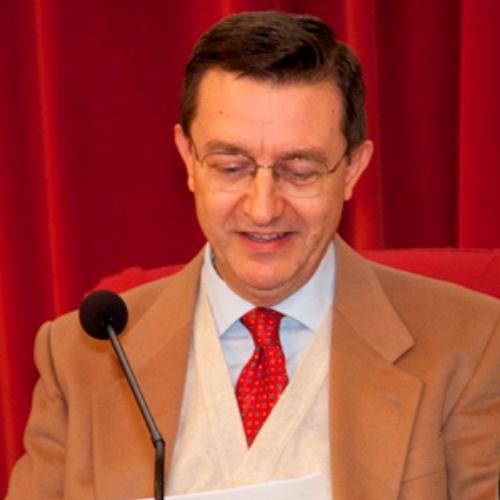
FLMR-01/B – Filologia e linguistica romanza
Incarichi
Coordinatore del dottorato di ricerca
Dipartimento di italianistica, romanistica, antichistica, arti e spettacolo - DIRAAS- - XL CICLO - LETTERATURE E CULTURE CLASSICHE E MODERNE
- - XXXIX CICLO - LETTERATURE E CULTURE CLASSICHE E MODERNE
- - XXXVIII CICLO - LETTERATURE E CULTURE CLASSICHE E MODERNE
Curriculum
1958 Born in Genoa
1983 Degree in Literature at the University of Genoa with a thesis on Parody in Romance Medieval Literature; 1986 (PhD) Doctorate in Literary Criticism at the University of Pavia with a dissertation on Intertextuality in the “Roman de Renart”; 1986 Researcher in Romance Philology at the University IULM of Milan; 1992 / 2002 Lecturer in Romance Philology at the University IULM of Milan; 1994 / 2000 Temporary Teacher (Reader) in Romance Philology at the University of Genoa; 2002 Associate Professor of Romance Philology at the University of Macerata; 2005 Full Professor of Romance Philology at the University of Macerata; 2019 Full Professor of Romance Philology at the University of Genoa.
Others academic experiences in teaching and research: 1981 / 2001 Founding Manager of the “Centro di ricerche in scienza della letteratura” (Research Centre on Literary Theory) in Genoa; 1992 Member of the Editorial Board of the Journal “L’immagine riflessa”; 1998 Associate founding Editor of the series “Gli Orsatti. Testi per un altro Medioevo”; 2003 Member of the Editorial Board of the Journal “Revue Critique de Philologie Romane” ; 2004 Member of the Teaching Staff of the Doctorate in Comparative Literature and of the Doctorate in Historical Linguistics of the University of Macerata; 2005 Member of the Advisory Board of the series “Ricerche intermedievali”; 2006 Member of the Advisory Board of the series “Quaderni linguistici, filologici e letterari”; 2007 Chief of the Teaching Staff of the Doctorate in Interpretation, Textual Philology and Cultural Traditions of the University of Macerata; 2007 Founding Manager of the “Centro di Antropologia del Testo” (Research Centre on Text Anthropology) in Macerata; 2011 – 2014 Deputy Manager of the School of Doctorate of the University of Macerata.
Bacheca
«Una disciplina accademica può essere del tutto ammirevole in quanto a rigore e profondità, o in quanto a risorse tecniche e capacità analitica, ma se vuole raggiungere la mente delle persone deve acquisire una certa valenza metafisica: cioè deve essere in grado di dire qualche cosa riguardo a temi come la coscienza, la volontà, la libertà e il reale carattere dell’uomo.» (Rodney Needham)
«Gli uomini non ragionano spesso; non ragionano a lungo; e quando ragionano, non lo fanno molto bene.» (R.N.)
«Chi nelle ricerche scientifiche avesse sempre di mira le applicazioni non troverebbe mai nulla; e chi nel giudicare l’importanza di una scoperta non sapesse veder altro che l’utilità che essa può avere, proverebbe di non aver gustato mai la vera gioia del sapere. Tale è almeno il mio modo di sentire.» (Galileo Ferraris)
«Nella società in cui viviamo, la principale difficoltà educativa presentata dai mezzi di comunicazione elettronici è l’accumularsi di esperienze e la possibilità limitata che esse si sviluppino in forme autentiche di conoscenza.» (Northrop Frye)
«One more thing, gentlemen, before I quit. Thomas Jefferson once said that all men are created equal, a phrase that the Yankees and the distaff side of the Executive branch in Washington are fond of hurling at us. There is a tendency in this year of grace, 1935, for certain people to use this phrase out of context, to satisfy all conditions. The most ridiculous example I can think of is that the people who run public education promote the stupid and idle along with the industrious — because all men are created equal, educators will gravely tell you, the children left behind suffer terrible feelings of inferiority. We know all men are not created equal in the sense some people would have us believe — some people are smarter than others, some people have more opportunity because they’re born with it, some men make more money than others, some ladies make better cake than others — some people are born gifted beyond the normal scope of most men. But there is one way in this country which all men are created equal — there is one human institution that makes a pauper the equal of a Rockefeller, the stupid man equal of an Einstein, and an ignorant man equal of any college president. That institution, gentlemen, is a court. It can be the Supreme Court of the United States or the humblest J.P. court in the land, or this honourable court which you serve. Our courts have their faults, as does any human constitution, but in this country our courts are the great levellers, and in our courts all men are created equal.» - To Kill a Mockingbird (Atticus Finch’s closing speech), by Harper Lee
Avviso permanente
Non rispondo a email prive di oggetto e mittente chiaramente identificabile. Gli studenti sono invitati a usare gli account forniti dall’ateneo.
Lista pubblicazioni (IRIS)
Ricerca 'Bonafin Massimo' in IRIS (link esterno)
Attività di Ricerca
L’immagine riflessa Testi società culture
Centro di Antropologia del Testo
Polythesis. Filologia, Interpretazione e Teoria della Letteratura
Viaggi nell’aldilà: A/R nello spazio-tempo
Trilogia di Meletinskij. Presentazione. Macerata.
Le metamorfosi di Renart la volpe
Antropologia liminalità letteratura
